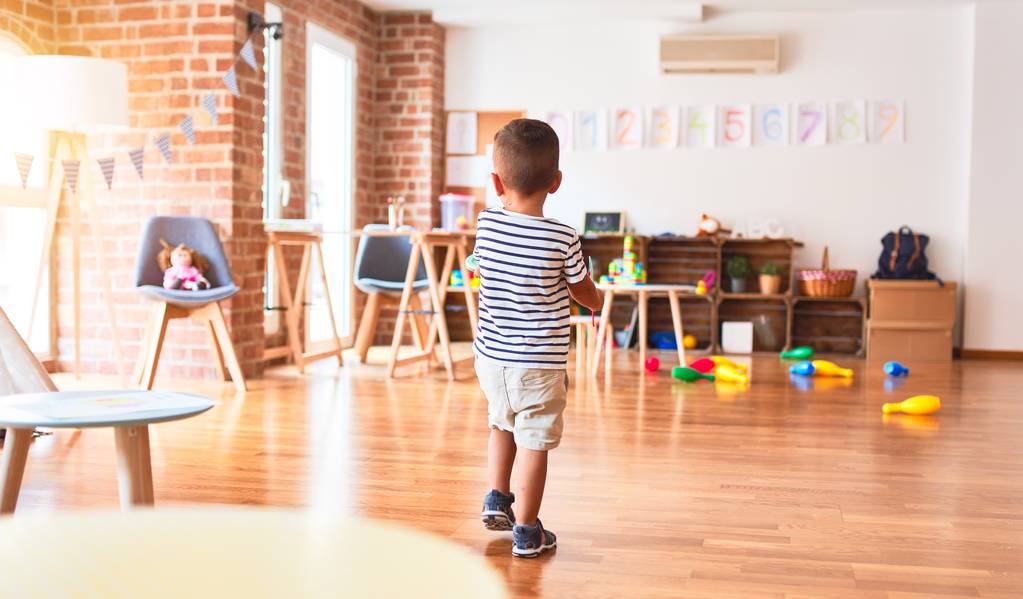Starting school is a major milestone in a child’s life, filled with excitement and a little bit of anxiety. For many children, the transition from home to school is their first big step into independence. While exciting, it can also be overwhelming for both children and their parents. Childcare providers play a crucial role in smoothing this transition, offering support that prepares children emotionally, socially, and cognitively for the challenges and joys of school life.
Building Emotional Readiness
A successful transition to school starts with building a child’s emotional readiness. This includes helping children develop confidence, resilience, and the ability to manage their emotions. Childcare providers can foster emotional readiness by encouraging self-awareness and self-regulation in their daily routines.
Children need to learn how to cope with feelings like excitement, anxiety, and frustration in positive ways. Childcare professionals can help by teaching children techniques for expressing their emotions verbally, rather than acting out. Offering a consistent routine, giving children opportunities to practise decision-making, and providing gentle encouragement when they face challenges all contribute to emotional maturity. This emotional stability will help them feel secure and confident when they enter a new environment like school.
Encouraging Social Development
School is a social experience as much as it is an academic one. Learning to interact with peers, understanding the concept of cooperation, and developing friendships are key components of a child’s early school years. Childcare providers can help children develop these skills long before they step into a classroom.
One of the ways childcare providers foster social development is by encouraging group play. This type of interaction teaches children how to share, take turns, and resolve conflicts. Through guided play, childcare professionals can model positive behaviours, such as using kind words, listening to others, and asking for help when needed. Additionally, structured group activities can offer a taste of what to expect in a classroom setting, where following instructions and working collaboratively with others will be important.
Childcare providers can also introduce children to social scenarios they may face in school. For example, practising waiting in line, sitting in a group, or raising hands to ask questions can ease a child’s adjustment to school routines.
Fostering Independence
One of the key roles of childcare in preparing children for school is fostering independence. School will demand a level of self-sufficiency from children that they may not have fully developed at home. Childcare providers can help bridge this gap by encouraging children to take responsibility for small tasks throughout the day.
These tasks can range from tidying up after playtime to managing personal belongings like coats and backpacks. Developing a routine where children are expected to perform simple tasks independently builds their confidence and prepares them for the increased expectations of school. By giving children opportunities to practise self-help skills, such as dressing, feeding themselves, and using the restroom independently, childcare providers help ensure that children feel capable and prepared when they enter school.
Cognitive Preparation and Early Learning
Beyond emotional and social readiness, cognitive preparation is a significant focus of childcare providers. The skills learned in early childhood education settings form the foundation for academic success in school. Childcare programs that include structured early learning activities help children develop the cognitive abilities they will need when they start formal schooling.
Language and literacy development are essential components of cognitive readiness. Reading stories, engaging in conversation, and encouraging children to express themselves verbally all contribute to language skills. Childcare providers often introduce early literacy activities, such as recognising letters, understanding phonetics, and developing pre-writing skills, which will ease the transition into a more structured academic environment.
Maths skills, too, can be introduced in subtle ways in childcare settings. Simple activities, like counting blocks or identifying shapes, teach children the basic maths concepts that will be built upon in school. Early exposure to numbers, patterns, and spatial reasoning through play helps children develop an intuitive understanding of maths.
Establishing a Routine
One of the most effective ways to help children transition smoothly from home to school is by establishing a routine. School life is heavily structured, with regular schedules and expectations that children must follow. For children who are used to a more fluid or relaxed daily schedule, adjusting to the structure of school can be challenging.
Childcare providers can help children adjust by creating predictable daily routines that mirror the structure of a school day. By sticking to a consistent schedule, children learn to anticipate what comes next, which reduces anxiety and builds a sense of security. This familiarity with routine helps children feel more comfortable when they start school and are expected to follow a similar pattern.
Routines not only help children feel safe, but they also teach time management skills. Knowing that certain activities happen at specific times during the day helps children understand the concept of time and builds their ability to manage transitions from one activity to another smoothly.
Bridging the Communication Gap
Childcare providers also play a vital role in bridging the communication gap between parents and future teachers. Open communication ensures that everyone involved in the child’s life is on the same page regarding their development and readiness for school. Childcare providers can facilitate this by keeping parents informed about their child’s progress in emotional, social, and cognitive areas.
Additionally, childcare providers can offer guidance to parents on how to continue the school preparation process at home. Simple activities like reading together, practising letters and numbers, or encouraging children to dress themselves help reinforce what children are learning in childcare. This collaborative approach ensures that the transition to school is a seamless continuation of the child’s growth, rather than a sudden change.

Addressing Separation Anxiety
Separation anxiety is a common concern for children transitioning from home to school. For some children, this might be the first time they will spend extended periods away from their primary caregivers. Childcare providers can ease this anxiety by gradually helping children get used to being apart from their parents.
Short separations, such as during drop-off and pick-up times, allow children to experience what it feels like to be independent while knowing that their parents will return. Childcare providers often create warm and nurturing environments that reassure children that they are in safe hands. Over time, children become more comfortable with the idea of being away from their parents, which makes the school transition less stressful.
Creating a sense of belonging within the childcare environment also helps. When children feel secure in their relationships with their childcare providers, they are more likely to feel confident about the transition to school, where they will be forming new relationships with teachers and classmates.
The Role of Childcare in Fostering Lifelong Learning
The transition from home to school marks the beginning of a child’s formal education journey, but it also sets the stage for a lifelong love of learning. Childcare providers can nurture this love by making learning fun and engaging from an early age. When children associate learning with positive experiences, they are more likely to embrace school with enthusiasm and curiosity.
Through creative play, exploration, and hands-on activities, childcare providers introduce children to the idea that learning is not just something that happens in school but is a natural part of life. Whether it’s discovering how plants grow in a garden or learning how to solve simple puzzles, these early experiences shape a child’s mindset about education.
In Summary
Childcare providers play an essential role in helping children transition from the familiarity of home to the structured environment of school. By fostering emotional readiness, encouraging social development, promoting independence, and offering cognitive preparation, they equip children with the skills and confidence they need to succeed. Additionally, through establishing routines, addressing separation anxiety, and fostering a love of learning, childcare providers help children view school as a positive and exciting new chapter in their lives. Whether you’re a parent looking for support during this important transition or a provider focused on offering the best start for the children in your care, understanding the key elements of a successful transition can make all the difference.

